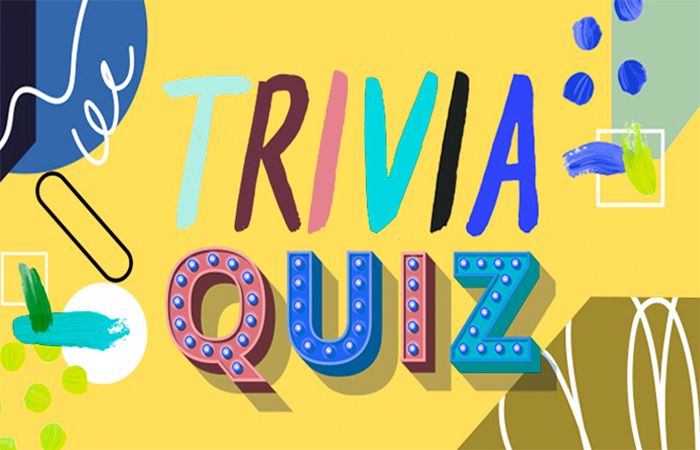It has been fourteen days since the Great Midwest Trivia Contest (GMTC). Since the residue has settled and rest has been up to speed with—to some degree—we can consider it. All through my Lawrence vocation, I have consistently thought about how to classify the GMTC—is it an only a game, or would it be a good idea for it to be viewed as a game?
The Merriam-Webster Dictionary characterizes a “game” as “a physical or mental rivalry led by rules with the members contrary to one another.” The GMTC positively fits the entirety of the rules for high school trivia to be a game: groups seek a prize that can be won by just one group, and players utilize their intellectual abilities in this opposition. This can be said for some exercises, for example, card and tabletop games, yet one would be unable to state that the GMTC Contest is fundamentally the same as a round of Red Tens or Monopoly.
The primary distinction between the GMTC and what most would mark as “games” is simply the physical cost players place. All together for a GMTC group to win, its individuals must have the endurance to contend inquiries for the whole the two-day range of the game. While games like Settlers of Caftan and Texas Hold Them can keep going for broadened timeframes, it would be profoundly abnormal for them to go to the lengths that the GMTC does.
GMTC Characterizing
The overwhelming length of the GMTC is a characterizing, essential state of the challenge, while different exercises sorted as games don’t expect members to expose themselves to such states of being. Moreover, a portion of the GMTC’s inquiries require physical movement.
Note that the physical focal point of the GMTC isn’t close to as extraordinary as sports prefer football, soccer and rugby. A specific level of genuineness is required for accomplishment in the GMTC, while in numerous different games physical ability and strategy are the fundamental prerequisites for progress—for instance, one can’t play soccer on the off chance that they can’t spill or shoot the ball, however one can in any case play without commonality of hostile and guarded strategies.
Indeed, even in sports like darts, one can’t prevail without the best possible physical method, paying little mind as far as anyone is concerned of rules and systems. Senior Ryan Lofstrom remarks, “[the GMTC] isn’t generally planned around showcases of physicality. They are joined sporadically and incidentally to upgrade the random data experience.”
1. Presently, class, who was the FIRST European to discover North America?
- Leif Erikson
- Hernando Cortes
- Christopher Columbus
- Amerigo Vespucci
2. Kindly focus: OK, which of coming up next was NOT a purpose behind Columbus’ journey?
- For political and financial reasons.
- To spread God and Christianity.
- To extend the Portuguese Empire.
- Individual aspiration.
3. What was Thomas Jefferson’s definitive articulation in his now-popular Declaration of Independence?
- Lord George ought not to have burdened the Colonies without portrayal in Parliament.
- All men are given unalienable rights.
- God instructed us to withdraw from Great Britain.
- The United States will do battle with Great Britain if fundamental.
4. What did the United States Constitution supplant?
- The Articles of Confederation.
- The Declaration of Independence.
- A more seasoned variant of itself.
- The Mayflower Compact.
5. How about we bounce ahead to the American Civil War, pre-war. Good, which of coming up next was NOT a reason for the Civil War?
- Bargain of 1850
- Tax imposition without any political benefit
- Outlaw Slave Law
- Missouri Compromise
6. Which of the accompanying doesn’t have a place? (Think BLOOD AND GORE, not geography…)
- Antietam
- Shiloh
- Gettysburg
- Stronghold Sumter
7. Who of the accompanying doesn’t have a place?
- Robert E. Lee
- George McClellan
- U.S. Award
- Winfield Scott
8. Recreation: which of the accompanying didn’t hamper Reconstruction endeavors?
- Johnson’s conflicts with Radical Republicans
- Racial clashes
- Abe Lincoln’s death
- The death of fifteenth Amendment
9. Later Industrial Revolution (c. 1830 onwards): Which of coming up next was or were imagined?
- Transmit
- Light
- Phone
- These
10. Goodness my! There goes the chime. One more inquiry: which of the accompanying Constitutional Amendments has been revoked?
- 15th
- 26th
- 1st
- 18th
11. Pakistan turned out to be liberated from British control in 1947. When the Lahore Resolution was endorsed, which required a sovereign, autonomous Muslim state?
- 1943
- 1940
- 1905
- 1946
12. Pakistan turned into a free country on _____.
- September 22, 1946
- July 5, 1947
- August 14, 1947
- Walk 23, 1948
13. Jinnah was proclaimed the primary Governor-General of Pakistan. Who was the primary head administrator?
- Chaudhry Rahmat Ali
- Liaquat Ali Khan
- Dr. Mohammed Iqbal
- None of these. Pakistan doesn’t have a head administrator.
14. On September 11, 1948, Jinnah kicked the bucket in Karachi at 72 years old. What was the reason for his demise?
- Tuberculosis
- Disease
- Death
- Coronary failure
15. In 1951, Liaquat was killed in Rawalpindi. Khawaja Nazimuddin, an East Pakistani who had succeeded Jinnah as lead representative general, became leader. Who became lead representative general?
- None of these
- Iskandar Mirza
- Ghulam Mohammed
- Ayyub Khan

